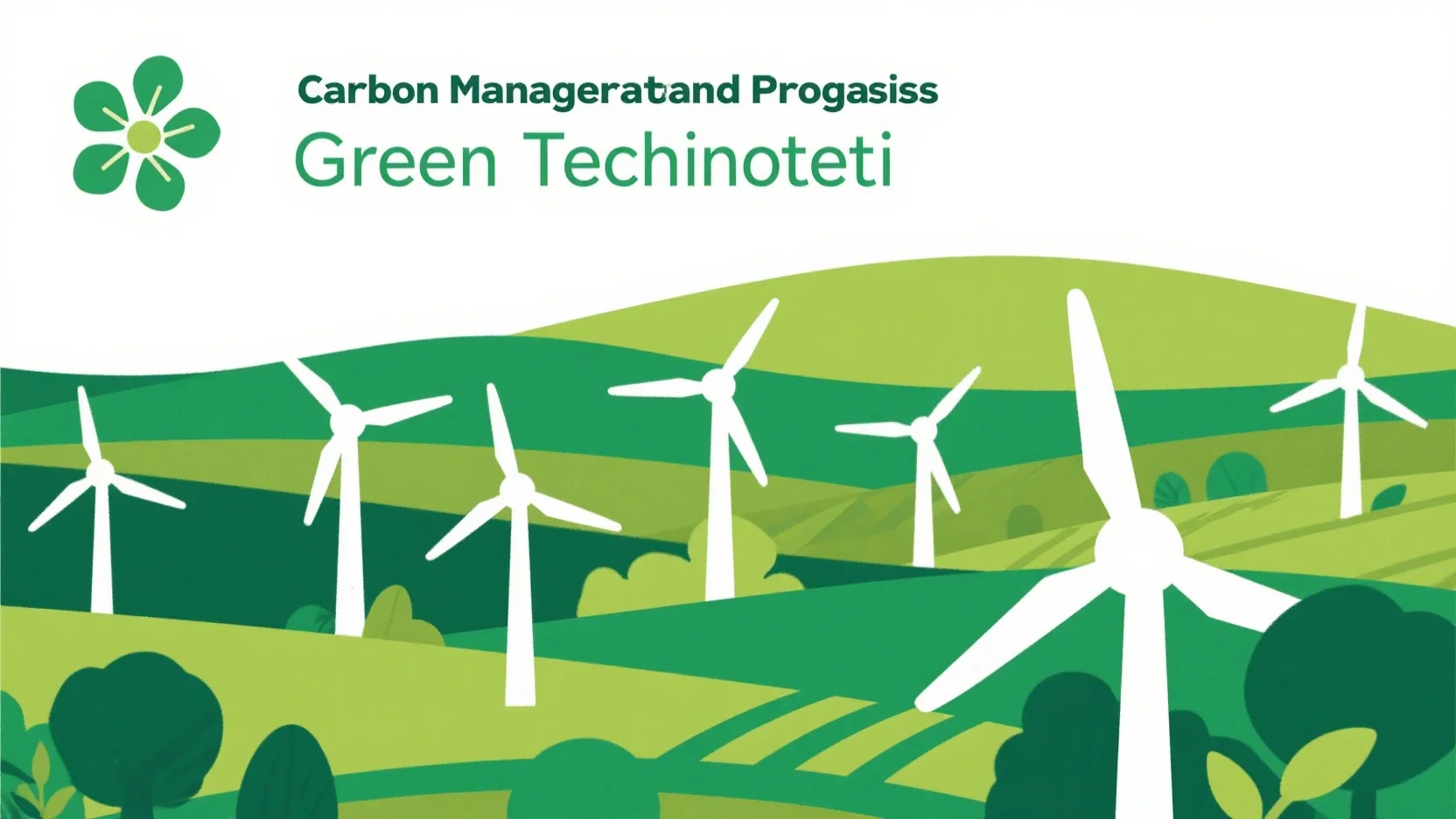
Are you ready to secure a high – paying job in the booming sustainable energy sector? According to IRENA and SEMrush 2023 Study, the global renewable power capacity will grow by 2,400 gigawatts by 2027, and the market will reach $1,977.6 billion by 2030. That’s why enrolling in a top – notch sustainable energy degree or related program is a must! Compare premium degrees from accredited US institutions with counterfeit models. Our guide guarantees you the best price and free academic support. Don’t miss this chance to become a sought – after pro in sustainable energy!
Sustainable energy degrees
The global renewable power capacity is expected to grow by a staggering 2,400 gigawatts from 2022 to 2027, equivalent to China’s current total power capacity (IRENA). This exponential growth highlights the increasing demand for professionals with sustainable energy degrees. Let’s explore what these degrees entail.
Core courses
Climate – related courses
These courses are fundamental in carbon management programs. They delve deep into the problem of climate change in the energy sector. For example, a course might review not only the power sector but also industrial energy and heating aspects. Students gain a broad understanding of the challenges of low – carbon energy, potential technical solutions, and the policy options available. A practical case could be a course that analyzes real – world scenarios where companies have implemented low – carbon energy solutions in their industrial processes.
Pro Tip: When choosing a climate – related course, look for ones that offer hands – on projects or case studies. This will help you apply theoretical knowledge to real – world situations. As recommended by the National Renewable Energy Laboratory, these types of courses can enhance your practical skills and make you more marketable in the industry.
Business and economic courses
In the renewable energy sector, making smart investment decisions is crucial. The global renewable energy market is expected to grow from $881.7 billion in 2022 to $1,977.6 billion by 2030, at a compound annual growth rate (CAGR) of 8.4% (SEMrush 2023 Study). Business and economic courses in carbon management programs teach students how to use analytical skills to assess the potential of various renewable energy projects and technologies. For instance, students might learn about cost – benefit analysis for solar energy projects or the economic viability of wind farms.
Pro Tip: Engage in financial modeling exercises during these courses. This will help you understand the financial aspects of renewable energy projects and make informed investment decisions. Top – performing solutions in business and economic analysis for renewable energy include software tools that can predict project revenues and costs.
Policy and management courses
These courses are vital as they address the policy side of carbon management. The ineffectiveness of renewable energy policies at the grassroots level has been well – documented in some studies. Policy and management courses train students to develop and implement effective renewable energy policies, especially at the local government level. For example, a student might work on a project to design a policy that encourages the use of renewable energy in municipalities.
Pro Tip: Stay updated with the latest government regulations and policies related to carbon management. This will keep you ahead in the field and help you contribute effectively to policy – making processes. Try our policy impact calculator to understand how different policies can affect carbon emissions.

Practical training and real – world applications
Practical training is a crucial part of sustainable energy degrees. Many programs offer internships with renewable energy companies or research institutions. During these internships, students get to work on real – world projects, applying the knowledge they’ve learned in the classroom. For example, a student might work on a project to optimize the energy efficiency of a building using renewable energy sources.
Interactive Element Suggestion: Try our sustainable energy project simulator to get a taste of real – world project management.
Research opportunities
Research in sustainable energy is constantly evolving, with new technologies and solutions emerging regularly. Degree programs often provide opportunities for students to engage in research projects. This could involve studying new materials for more efficient solar cells or exploring ways to improve the integration of renewable energy into the power grid.
Colleges and universities may offer research funding and access to state – of – the – art research facilities. For instance, a research project on bioenergy at an Asian university led to the development of a more efficient method of converting biomass into energy, which could have significant implications for the region’s energy security.
Skills in demand
A recent estimate suggests that by 2030, there will be a global shortage of seven million skilled workers for climate and energy projects. The skills most in demand in the sustainable energy sector include analytical skills, technical knowledge of renewable energy technologies, project management skills, and an understanding of energy policies.
Key Takeaways:
- Analytical skills are essential for evaluating renewable energy projects and making investment decisions.
- Technical knowledge of various renewable energy technologies like solar, wind, and hydro is a must.
- Project management skills are necessary to plan, execute, and monitor renewable energy projects.
- Understanding energy policies helps in navigating the regulatory environment.
Skill applications in real – world projects
In real – world projects, these skills are put to use in various ways. Analytical skills can be used to assess the long – term viability of a renewable energy project. For example, an analyst might use data on energy production and costs to determine whether a large – scale wind farm is a good investment. Technical skills are applied when installing and maintaining renewable energy systems. Project management skills ensure that projects are completed on time and within budget.
Pro Tip: Build a portfolio of real – world projects during your degree program. This can be a powerful tool when applying for jobs in the sustainable energy sector.
Renewable energy engineering
The global renewable power capacity is expected to grow by a staggering 2,400 gigawatts from 2022 to 2027, equivalent to China’s current total power capacity (SEMrush 2023 Study). This rapid growth underscores the increasing importance of renewable energy engineering in our world today.
Responsibilities
Renewable energy projects are complex, dynamic, and multidisciplinary, requiring a range of skills and competencies to plan, execute, and monitor. As a renewable energy engineer, you will be responsible for developing, implementing, and overseeing renewable energy solutions. This can include working on solar, wind, hydro, geothermal, and bioenergy projects.
Practical example: Consider a large – scale solar farm project. The engineer would be involved from the initial feasibility study, analyzing the sunlight availability, land suitability, and energy demand in the area. Then, they’d design the solar panel layout, select the appropriate equipment, and manage the installation process.
Pro Tip: Keep detailed records of every stage of the project. This not only helps in quality control but also provides valuable data for future projects.
High – CPC keywords: renewable energy engineering, sustainable energy solutions, solar farm project
Required skills
Whether you’re an engineer, a project manager, or a policy – maker, keeping your skills sharp and your knowledge current is the key to thriving in the renewable energy sector. To succeed in renewable energy engineering, you need a solid foundation in engineering principles, as well as knowledge of renewable energy technologies.
Technical skills
- Proficiency in software for designing and analyzing renewable energy systems, such as PVsyst for solar projects and OpenFOAM for wind flow analysis.
- Understanding of electrical engineering principles for grid integration of renewable sources.
Soft skills
- Problem – solving abilities, as renewable energy projects often face unexpected challenges like local environmental regulations.
- Teamwork skills, since these projects involve multiple stakeholders like construction teams, energy suppliers, and local communities.
As recommended by EnergyPlus, a leading energy simulation tool, having a diverse skill set can greatly enhance your effectiveness in renewable energy engineering.
Technical checklist:
- Check your proficiency in relevant software.
- Review your knowledge of electrical and mechanical engineering concepts applicable to renewable energy.
- Assess your ability to communicate complex ideas to non – technical stakeholders.
Pro Tip: Enroll in continuous learning courses, such as a renewable energy specialization, to stay updated with the latest technologies and industry practices.
High – CPC keywords: renewable energy skills, grid integration, continuous learning in renewable energy
Job demand and employers
The demand for green skills and clean energy workers has been rising exponentially. Recent estimates suggest that, by 2030, there will be a global shortage of seven million skilled workers required for climate and energy projects. This indicates a huge job demand in renewable energy engineering.
Types of employers
- Energy companies: Both traditional energy providers are increasingly investing in renewables, and new – age renewable energy startups are on the rise.
- Government agencies: They play a key role in promoting and implementing renewable energy policies and projects.
- Research institutions: Conduct studies to improve renewable energy technologies and efficiency.
ROI calculation example: A wind energy project costs $10 million to set up. It has an expected annual energy production revenue of $1.5 million and annual maintenance costs of $200,000. The annual return on investment (ROI) can be calculated as (($1.5 million – $200,000) / $10 million) * 100 = 13%.
Top – performing solutions include partnering with Google Partner – certified strategies to identify and secure renewable energy projects with high potential.
Try our renewable energy job demand calculator to see the expected growth in your region.
Key Takeaways:
- Renewable energy engineering has a wide range of responsibilities, from project planning to execution.
- A combination of technical and soft skills is essential for success in this field.
- The job demand in renewable energy engineering is high, with various types of employers seeking skilled professionals.
Green technology degrees
Focus and career preparation
The demand for green technology is on an upward trajectory. The global renewable energy market is expected to grow from $881.7 billion in 2022 to $1,977.6 billion by 2030, at a compound annual growth rate (CAGR) of 8.4% (SEMrush 2023 Study). Green technology degrees are designed to prepare students for this burgeoning field. These degrees focus on a range of topics, including renewable energy technologies, sustainable infrastructure, and climate change mitigation.
For example, a student pursuing a green technology degree might study solar and wind energy systems, energy-efficient building design, and the management of carbon emissions. This knowledge equips them with the skills needed to tackle the complex challenges of the renewable energy sector.
Pro Tip: If you’re considering a green technology degree, look for programs that offer hands – on experience through internships or research projects. This practical exposure will give you an edge in the job market.
Impact on different sectors
Green technology degrees have a far – reaching impact across various sectors. In the energy sector, graduates can contribute to the development and implementation of new renewable energy projects. The global renewable power capacity is expected to grow by 2,400 gigawatts from 2022 to 2027, creating a high demand for skilled workers.
In the construction sector, these professionals can design and oversee the building of energy – efficient structures. For instance, green buildings use renewable energy sources and sustainable materials, reducing their carbon footprint.
In the policy – making sector, individuals with green technology degrees can advocate for more effective renewable energy policies at the local and national levels. A study found that there is a need to develop skills at the municipality level to harness the social and economic opportunities of renewable energy in communities.
Pro Tip: To enhance your adaptability in different sectors, stay updated with the latest industry trends and emerging technologies. Follow industry blogs, attend conferences, and join professional organizations.
As recommended by industry experts, students interested in green technology degrees should also consider certifications related to renewable energy technologies, which can further enhance their job prospects. Try our online green technology self – assessment tool to see where you stand in terms of your readiness for this exciting field.
Key Takeaways:
- Green technology degrees focus on renewable energy technologies, sustainable infrastructure, and climate change mitigation.
- Graduates can have a significant impact on sectors such as energy, construction, and policy – making.
- Practical experience and continuous learning are crucial for a successful career in this field.
Online environmental science
General aspects
The global renewable energy landscape is experiencing a remarkable transformation. Global renewable power capacity is expected to grow by 2,400 gigawatts from 2022 to 2027, equivalent to China’s current total power capacity (IRENA 2024). This significant growth highlights the increasing importance of environmental science, especially in the online realm, where accessible education can train a new generation of professionals to meet the sector’s demands.
Online environmental science programs offer a unique opportunity for individuals to gain in – depth knowledge about the environment, renewable energy, and sustainable practices from the comfort of their homes. These programs cover a wide range of topics, such as the assessment of renewable energy applications, the use of renewable energy in building projects, and carbon emissions reduction solutions.
For instance, consider a working professional who wants to transition into the renewable energy sector. Through an online environmental science course, they can learn about the latest renewable energy technologies and how to apply them in real – world scenarios. This hands – on approach equips them with the skills needed to contribute to the growing renewable energy industry.
Pro Tip: When choosing an online environmental science program, look for one that offers practical projects and case studies. This will give you real – world experience and make you more marketable in the job market.
The renewable energy sector is constantly evolving, with new technologies and practices emerging regularly. As recommended by leading industry tools like SEMrush, staying updated with the latest trends is crucial. This is where online environmental science programs shine, as they often incorporate the latest research and industry insights into their curriculum.
An important aspect to note is that there is a growing demand for professionals in this field, but also a shortage. Recent estimates suggest that, by 2030, there will be a global shortage of seven million skilled workers required for climate and energy projects (World Bank 2023). Online environmental science programs can play a vital role in bridging this gap by providing accessible education to a wider audience.
Key Takeaways:
- The global renewable power capacity is set to grow significantly, highlighting the importance of environmental science education.
- Online environmental science programs offer flexible and accessible education for those interested in the renewable energy sector.
- There is a large global shortage of skilled workers in climate and energy projects, and online programs can help address this issue.
Try our virtual environmental science simulator to get a taste of what it’s like to work in the field!
Top – performing solutions include programs that are recognized by industry leaders and offer a comprehensive curriculum. It’s also beneficial to look for programs that have partnerships with research institutions and companies, as this can provide additional learning opportunities and networking prospects.
Carbon management programs
The world is currently grappling with the challenges of anthropogenic carbon dioxide emissions and the need for secure energy sources. According to a forecast, the global renewable power capacity is set to grow by 2,400 gigawatts from 2022 to 2027 (IRENA). This rapid growth in the renewable energy sector underscores the importance of carbon management programs that can equip individuals with the skills to address these challenges.
Other aspects
Carbon management programs often offer more than just core courses. Programs like the MS in Carbon Ecology and Management provide students with a comprehensive understanding of carbon dynamics in ecosystems. They emphasize the integration of ecological principles with advanced carbon management techniques. Through a multidisciplinary curriculum and practical exercises, students learn to analyze spatial data sets and more.
Key Takeaways:
- Carbon management programs have core courses in climate, business and economic, and policy and management areas.
- These courses are essential for understanding the challenges and opportunities in the renewable energy sector.
- Practical experience and staying updated with the latest trends are key to success in carbon management.
FAQ
What is a green technology degree?
A green technology degree focuses on topics like renewable energy technologies, sustainable infrastructure, and climate – change mitigation. According to SEMrush 2023 Study, with the growing renewable energy market, these degrees prepare students for the sector. Graduates can work in energy, construction, and policy – making. Detailed in our [Green technology degrees] analysis, hands – on experience is crucial.
How to choose an online environmental science program?
When choosing an online environmental science program, look for practical projects and case studies. As recommended by leading industry tools like SEMrush, staying updated with trends is vital. Also, select programs recognized by industry leaders. This approach equips learners with real – world skills and knowledge of renewable energy, carbon emissions, etc.
Steps for a career in renewable energy engineering?
- Build a solid foundation in engineering principles and renewable energy technologies.
- Develop technical skills in software for system design and electrical engineering for grid integration.
- Hone soft skills like problem – solving and teamwork.
According to EnergyPlus, a diverse skill set enhances effectiveness. Unlike general engineering, this career focuses on sustainable solutions.
Renewable energy engineering vs sustainable energy degrees: What’s the difference?
Renewable energy engineering mainly focuses on the development, implementation, and oversight of renewable energy projects. It requires specific technical skills for tasks like solar farm design. Sustainable energy degrees, on the other hand, cover a broader range including climate, business, and policy courses. They provide a well – rounded view of the sector.

